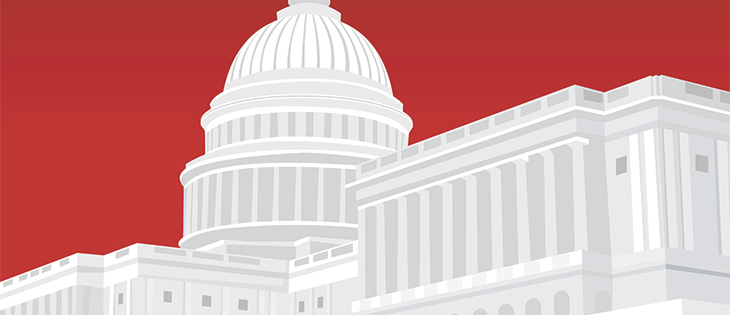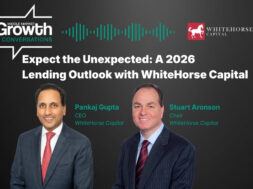Middle-Market Public Policy Roundup
A new bipartisan bill would loosen banking restrictions included in the Dodd-Frank Act, and the next phase of the net neutrality fight has begun.

This week’s roundup looks at the provisions of a new (bipartisan!) bill that would roll back some of the key banking regulations included in the Dodd-Frank Act, plus a preview of the next phase in the net neutrality fight. Hint: it’s lawsuits.
Community Bank Relief Bill on the Docket
The first major change to the Dodd-Frank Act since its passage in 2010 is in the works, as MMG reported when the bill was first released and when it first moved out of the Senate Banking Committee.
The bill’s most notable provisions include:
- The Systematically Important Financial Institution (SIFI) Threshold
- Under section 165 of Dodd-Frank, any bank that holds more than $50 billion in assets is subject to “enhanced prudential standards.” These include oversight by the Financial Stability Oversight Council, regular stress tests to ensure they can withstand financial crises, enhanced capital requirements, and risk management requirements, among others.
- The proposed legislation would generally raise the threshold for qualifying as an SIFI to $250 billion in assets. Banks with less than $100 billion would be exempted immediately, while banks with between $100 billion and $250 billion would be exempted after 18 months. For banks that are de-designated, the Federal Reserve would still retain discretionary authority under extraordinary circumstances.
- Stress Tests
- Banks with more than $250 billion would face stress tests under two hypothetical scenarios for U.S. economic conditions. They include a “baseline” scenario, in which the economy performs according to a set of January 2018 consensus projections, and a “severely adverse” scenario characterized by an economy besieged by a severe global recession. Banks are currently tested against three scenarios—baseline, adverse and severely adverse.
- Volcker Rule Exemption
- Banks with less than $10 billion in total assets, and less than 5 percent of total consolidated assets in trading assets and liabilities, would be exempted from the Volcker rule, allowing them to invest in private equity and hedge funds.
For a full breakdown, see this Sullivan & Cromwell report.
Wait, wait … bipartisanship?
Twelve Democrats are co-sponsoring the legislation, making this one of the few bipartisan bills to hit the Senate floor since President Trump’s inauguration. The bill has proven divisive within Democratic ranks; the progressive faction of the party is revolting against the support from moderates, and several progressive groups within the party have mobilized their ranks against it.
Twelve Democrats are co-sponsoring the legislation, making this one of the few bipartisan bills to hit the Senate floor since President Trump’s inauguration.
Per Politico, Republican Sen. Mike Crapo of Idaho hopes that the Senate will bring the bill to the floor for discussion and votes shortly after the President’s Day recess. Congress returns on Monday, Feb. 26.
Net Neutrality Reversal Published by the FCC
The Federal Communications Commission published its repeal of the Obama-era net neutrality rule in the Federal Register on Thursday after overturning the rules, which provided equal treatment for all web traffic, in December.
Now that the repeal is official, state attorneys general, corporations and individuals are able to sue in an attempt to prevent its implementation, which is slated for April 23, Forbes reports.
Many of the lawsuits will focus on “abuse of discretion within the meaning of the Administrative Procedure Act” and the violation of “federal law, including, but not limited to the U.S. Constitution, The Communications Act of 1934, and the FCC regulations promulgated there under.” Lawsuits will come from over 20 states, along with companies such as Google, Facebook, Amazon and many others.
Without net neutrality, internet service providers will be free to charge individuals and companies extra for access to sites (e.g., $10 extra a month to gain access to Facebook), or to accept money from companies in exchange for prioritizing their service (e.g., Netflix could arrange a contract with Comcast to prioritize its streaming service over others). Advocates for net neutrality say that it’s necessary to provide free and open access to information, and to allow small and midsize companies to compete with the likes of Amazon; critics say that treating the internet like a utility hurts investment.
Check back each Friday for the weekly Public Policy Roundup. Is there a policy issue you’d like us to cover? Send your suggestions to MMG Editor Kathryn Mulligan at kmulligan@acg.org.

Ben Marsico is ACG Global’s manager of legislative and regulatory affairs.


